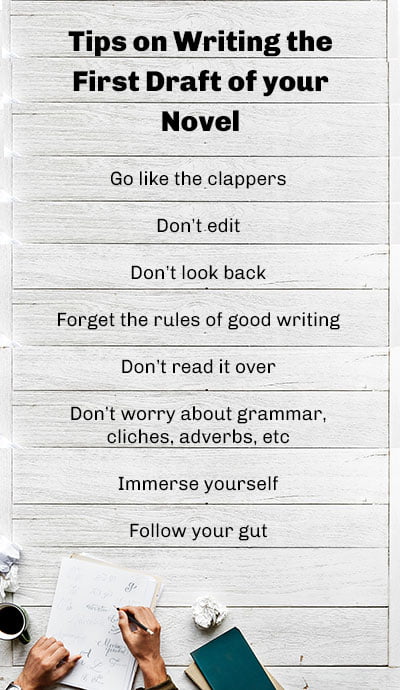
Writing the first draft of your novel
Plough on, keep looking forward, don’t hesitate
By far the most important piece of advice you can follow when writing the first draft of your novel, is to plough on through, and not hang around editing, polishing and tweaking.
It can be tempting to redraft the first few chapters several times before you have even written a first draft of the middle or end, but this isn’t going to get you any closer to completion. You may think that getting it right now will save you time later, but in the vast majority of cases, that won’t happen.
That’s because by the time you drag yourself, wheezing and panting, to the end of your first draft, even if you planned diligently, you will have learned so much more about your characters and plot that hefty changes and cuts will be the order of the day.
If you only thrashed out a first draft, this won’t be too painful and it won’t mean too much wasted time. However, if you know you spent months writing scene one: selecting the most perfect words and sentence structures in each case, then you’re not going to want to slash the scene and may try to work out a way of keeping it – even if it means yanking the rest of the plot out of shape.
Don’t worry about good writing – yes, really
The first draft is not about showing your command of elegant metaphor, your outstanding vocabulary or your skill at applying exactly the right word in the right place. Save that for the second and third drafts.
The first draft is about getting a good grip on your plot, developing your characters and their interactions in broad strokes, and identifying any gaping plot holes, inconsistencies or impossibilities.
So it doesn’t matter if you use the most blatant cliché to capture a particular feeling or notion, only that the feeling or notion is captured. Later, in the second and third drafts you can spend a whole day selecting the most perfect non-cliché replacement. Likewise for telling instead of showing, using adverbs – even exact punctuation is not high on the priority list.
Immerse yourself in the story
Because you’re not worrying about perfection in the first draft, you can really immerse yourself in the story and allow yourself to be swept away on the narrative. Let your imagination loose and your sub-conscious go wild. Follow your fingers and your feelings.
This is a good time where you can relax and let your story telling juices flow – enjoy it!

